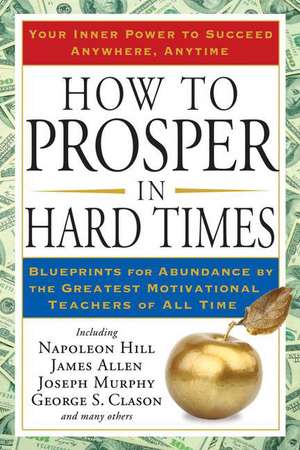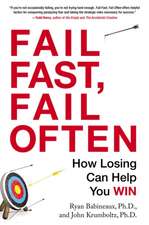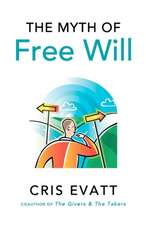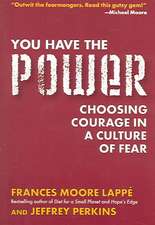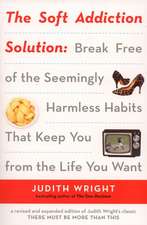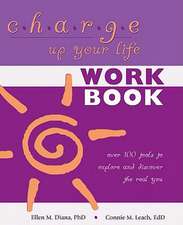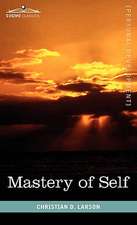How to Prosper in Hard Times: Blueprints for Abundance by the Greatest Motivational Teachers of All Time
Autor Napoleon Hill, James Allen, Joseph Murphyen Limba Engleză Paperback – 31 ian 2009 – vârsta de la 18 ani
The tried-and-true prosperity wisdom of these beloved writers, teachers, and thinkers has been relied upon by generations of Americans seeking guidance in hard economic times? and now, for the first time, it is collected in a single, compact paperback volume.
Cherished for decades, these timeless writings from self-help and inspirational masters, including Napoleon Hill, Florence Scovel Shinn, James Allen, and Russell Conwell, have touched the lives of literally millions of people, giving them the insight and knowledge to take care of their families and themselves in difficult times. How to Prosper in Hard Times is an easy- to-use, one-of-a- kind volume, combining inspirational advice on attracting prosperity, dealing with hardship, and keeping a positive attitude no matter what.
A necessary handbook for our era, How to Prosper in Hard Times is filled with time-tested wisdom that resonates as strongly and as truly today as when it was first written.
Featuring:
-Prayer for Prosperity by Florence Scovel Shinn
-How to Attract Money by Joseph Murphy
-Permanent Success is Built on Hardship and Temporary Failure by Napoleon Hill
-Seven Remedies for a Lean Purse by George S. Clason
-After Failure, What? by Orson Swett Marden
-Light on Life?s Difficulties by James Allen
-What You Can Do With Your Will Power by Russell H. Conwell
-The Optimist?s Creed by Christian Larsen
-A full About the Authors section, featuring capsule biographies and bibliographic and historical information
Cherished for decades, these timeless writings from self-help and inspirational masters, including Napoleon Hill, Florence Scovel Shinn, James Allen, and Russell Conwell, have touched the lives of literally millions of people, giving them the insight and knowledge to take care of their families and themselves in difficult times. How to Prosper in Hard Times is an easy- to-use, one-of-a- kind volume, combining inspirational advice on attracting prosperity, dealing with hardship, and keeping a positive attitude no matter what.
A necessary handbook for our era, How to Prosper in Hard Times is filled with time-tested wisdom that resonates as strongly and as truly today as when it was first written.
Featuring:
-Prayer for Prosperity by Florence Scovel Shinn
-How to Attract Money by Joseph Murphy
-Permanent Success is Built on Hardship and Temporary Failure by Napoleon Hill
-Seven Remedies for a Lean Purse by George S. Clason
-After Failure, What? by Orson Swett Marden
-Light on Life?s Difficulties by James Allen
-What You Can Do With Your Will Power by Russell H. Conwell
-The Optimist?s Creed by Christian Larsen
-A full About the Authors section, featuring capsule biographies and bibliographic and historical information
Preț: 134.21 lei
Nou
Puncte Express: 201
Preț estimativ în valută:
25.68€ • 26.72$ • 21.20£
25.68€ • 26.72$ • 21.20£
Carte tipărită la comandă
Livrare economică 14-28 aprilie
Preluare comenzi: 021 569.72.76
Specificații
ISBN-13: 9781585427550
ISBN-10: 1585427551
Pagini: 255
Dimensiuni: 143 x 208 x 19 mm
Greutate: 0.28 kg
Editura: Tarcher
ISBN-10: 1585427551
Pagini: 255
Dimensiuni: 143 x 208 x 19 mm
Greutate: 0.28 kg
Editura: Tarcher
Notă biografică
Napoleon Hill was born in 1883 in Virginia and died in 1970 after a long and successful career as a lecturer, an author, and as a consultant to business leaders. Think and Grow Rich is the all-time bestseller in its field, having sold 15 million copies worldwide, and sets the standard for today’s motivational thinking.
James Allen was born in Leicester, England, in 1864. He took his first job at age 15 to support his family, after his father was murdered while looking for work in America. Allen was employed as a factory knitter and a private secretary until the early twentieth century, when he became increasingly known for his motivational writing. His 1903 work As a Man Thinketh earned him worldwide fame as a prophet of inspirational thinking and influenced a who's-who of self-help writers, including Napoleon Hill, Dale Carnegie, and Norman Vincent Peale. Allen died at age 47 in 1912.
James Allen was born in Leicester, England, in 1864. He took his first job at age 15 to support his family, after his father was murdered while looking for work in America. Allen was employed as a factory knitter and a private secretary until the early twentieth century, when he became increasingly known for his motivational writing. His 1903 work As a Man Thinketh earned him worldwide fame as a prophet of inspirational thinking and influenced a who's-who of self-help writers, including Napoleon Hill, Dale Carnegie, and Norman Vincent Peale. Allen died at age 47 in 1912.
Extras
WHAT YOU CAN DO WITH
YOUR WILL POWER by Russell H. Conwell
The Author is much indebted to Mr.Merle Crowell of the American Magazine who
assisted most efficiently in the preparation of the facts herein contained.
I.
Success has no secret. Her voice is forever ringing through the market-place and crying in the wilderness, and the burden of her cry is one word—WILL. Any normal young man who hears and heeds that cry is equipped fully to climb to the very heights of life.
The message I would like to leave with the young men and women of America is a message I have been trying humbly to deliver from lecture platform and pulpit for more than fifty years. It is a message the accuracy of which has been affirmed and reaffirmed in thousands of lives whose progress I have been privileged to watch. And the message is this:Your future stands before you like a block of unwrought marble. You can work it into what you will. Neither heredity, nor environment, nor any obstacles superimposed by man can keep you from marching straight through to success, provided you are guided by a firm, driving determination and have normal health and intelligence.
Determination is the battery that commands every road of life. It is the armor against which the missiles of adversity rattle harmlessly. If there is one thing I have tried peculiarly to do through these years it is to indent in the minds of the youth of America the living fact that when they give WILL the reins and say “DRIVE” they are headed toward the heights.
The institution out of which Temple University, of Philadelphia, grew was founded thirty years ago expressly to furnish opportunities for higher education to poor boys and girls who are willing to work for it. I have seen ninety thousand students enter its doors. A very large percentage of these came to Philadelphia without money, but firmly determined to get an education. I have never known one of them to go back defeated. Determination has the properties of a powerful acid; all shackles melt before it.
Conversely, lack of will power is the readiest weapon in the arsenal of failure. The most hopeless proposition in the world is the fellow who thinks that success is a door through which he will sometime stumble if he roams around long enough. Some men seem to expect ravens to feed them, the cruse of oil to remain inexhaustible, the fish to come right up over the side of the boat at meal-time.
They believe that life is a series of miracles. They loaf about and trust in their lucky star, and boldly declare that the world owes them a living.
As a matter of fact the world owes a man nothing that he does not earn. In this life a man gets about what he is worth, and he must render an equivalent for what is given him. There is no such thing as inactive success.
My mind is running back over the stories of thousands of boys and girls I have known and known about, who have faced every sort of a handicap and have won out solely by will and perseverance in working with all the power that God had given them. It is now nearly thirty years since a young English boy came into my office. He wanted to attend the evening classes at our university to learn oratory.
“Why don’t you go into the law?” I asked him.
“I’m too poor! I haven’t a chance!” he replied, shaking his head sadly.
I turned on him sharply. “Of course you haven’t a chance,” I exclaimed, “if you don’t make up your mind to it!”
The next night he knocked at my door again. His face was radiant and there was a light of determination in his eyes.
“I have decided to become a lawyer,” he said, and I knew from the ring of his voice that he meant it.
Many times after he became mayor of Philadelphia he must have looked back on that decision as the turning point in his life.
I am thinking of a young Connecticut farm lad who was given up by his teachers as too weak-minded to learn.
He left school when he was seven years old and toiled on his father’s farm until he was twenty-one. Then something turned his mind toward the origin and development of the animal kingdom. He began to read works on zoology, and, in order to enlarge his capacity for understanding, went back to school and picked up where he left off fourteen years before. Somebody said to him, “You can get to the top if you will!”
He grasped the hope and nurtured it, until at last it completely possessed him. He entered college at twenty-eight and worked his way through with the assistance that we were able to furnish him. To-day he is a respected professor of zoology in an Ohio college.
Such illustrations I could multiply indefinitely. Of all the boys whom I have tried to help through college I cannot think of a single one who has failed for any other reason than ill health. But of course I have never helped any one who was not first helping himself. As soon as a man determines the goal toward which he is marching, he is in a strategic position to see and seize everything that will contribute toward that end.
Whenever a young man tells me that if he “had his way” he would be a lawyer, or an engineer, or what not, I always reply:
“You can be what you will, provided that it is something the world will be demanding ten years hence.”
This brings to my mind a certain stipulation which the ambition of youth must recognize. You must invest yourself or your money in a known demand. You must select an occupation that is fitted to your own special genius and to some actual want of the people. Choose as early as possible what your life-work will be. Then you can be continually equipping yourself by reading and observing to a purpose. There are many things which the average boy or girl learns in school that could be learned outside just as well.
Almost any man should be able to become wealthy in this land of opulent opportunity. There are some people who think that to be pious they must be very poor and very dirty. They are wrong. Not money, but the love of money, is the root of all evil. Money in itself is a dynamic force for helping humanity.
In my lectures I have borne heavily on the fact that we are all walking over acres of diamonds and mines of gold.
There are people who think that their fortune lies in some far country. It is much more likely to lie right in their own back yards or on their front door-step, hidden from their unseeing eye. Most of our millionaires discovered their fortunes by simply looking around them.
Recently I have been investigating the lives of four thousand and forty-three American millionaires. All but twenty of them started life as poor boys, and all but forty of them have contributed largely to their communities, and divided fairly with their employees as they went along. But, alas, not one rich man’s son out of seventeen dies rich.
But if a man has dilly-dallied through a certain space of wasted years, can he then develop the character—the motor force—to drive him to success? Why, my friend, will power cannot only be developed, but it is often dry powder which needs only a match. Very frequently I think of the life of Abraham Lincoln—that wonderful man! and I am thankful that I was permitted to meet him. Yet Abraham Lincoln developed the splendid sinews of his
will after he was twenty-one. Before that he was just a roving, goodnatured sort of a chap. Always have I regretted that I failed to ask him what special circumstance broke the chrysalis of his life and loosened the wings of his will.
Many years ago some of the students of Temple University held a meeting in a building opposite the Bellevue-Stratford Hotel. As they were leaving the building they noticed a foreigner selling peanuts on the opposite curb. While buying peanuts they got to talking with the fellow, and told him that any one could obtain an education if he was willing to work for it. Eagerly the poor fellow drank up all the information he could get. He enrolled at Temple University and worked his way through, starting with the elementary studies. He is to-day an eminent practising physician in the national capital.
Often I think of an office clerk who reached a decision that the ambitions which were stirring in his soul could be realized if he could only get an education. He attended our evening classes and was graduated with a B.S. degree. He is now the millionaire head of one of the largest brokerage houses in the country.
“Where there’s a will there’s a way!” But one needs to use a little common sense about selecting the way. A general may determine to win a victory, but if he hurls his troops across an open field straight into the leaden sweep of the enemy’s artillery he invites disaster and defeat. The best general lays his plans carefully, and advances his troops in the way that will best conserve their strength and numbers. So must a man plan his campaign of life.
No man has a right, either for himself or for others, to be at work in a factory, or a store, or anywhere else, unless he would work there from choice—money or no money—if he had the necessities of life.
“As a man thinks, so he is,” says the writer of Proverbs; but as a man adjusts himself, so really is he, after all. One great trouble with many individuals is that they are made up of all sorts of machinery that is not adjusted, that is out of place—no belts on the wheels, no fire under the boiler, hence no steam to move the mechanism.
Some folk never take the trouble to size themselves up—to find out what they are fitted to do—and then wonder why they remain way down at the bottom of the heap. I remember a young woman who told me that she did not believe she could ever be of any particular use in the world. I mentioned a dozen things that she ought to be able to do.
“If you only knew yourself,” I said, “you would set yourself to writing. You ought to be an author.”
She shook her head and smiled, as if she thought I was making fun of her. Later, force of circumstances drove her to take up the pen. And when she came to me and told me that she was making three thousand dollars a year in literary work, and was soon to go higher, I thought back to the time when she was a poor girl making three dollars a week when she failed accurately to estimate herself.
YOUR WILL POWER by Russell H. Conwell
The Author is much indebted to Mr.Merle Crowell of the American Magazine who
assisted most efficiently in the preparation of the facts herein contained.
I.
Success has no secret. Her voice is forever ringing through the market-place and crying in the wilderness, and the burden of her cry is one word—WILL. Any normal young man who hears and heeds that cry is equipped fully to climb to the very heights of life.
The message I would like to leave with the young men and women of America is a message I have been trying humbly to deliver from lecture platform and pulpit for more than fifty years. It is a message the accuracy of which has been affirmed and reaffirmed in thousands of lives whose progress I have been privileged to watch. And the message is this:Your future stands before you like a block of unwrought marble. You can work it into what you will. Neither heredity, nor environment, nor any obstacles superimposed by man can keep you from marching straight through to success, provided you are guided by a firm, driving determination and have normal health and intelligence.
Determination is the battery that commands every road of life. It is the armor against which the missiles of adversity rattle harmlessly. If there is one thing I have tried peculiarly to do through these years it is to indent in the minds of the youth of America the living fact that when they give WILL the reins and say “DRIVE” they are headed toward the heights.
The institution out of which Temple University, of Philadelphia, grew was founded thirty years ago expressly to furnish opportunities for higher education to poor boys and girls who are willing to work for it. I have seen ninety thousand students enter its doors. A very large percentage of these came to Philadelphia without money, but firmly determined to get an education. I have never known one of them to go back defeated. Determination has the properties of a powerful acid; all shackles melt before it.
Conversely, lack of will power is the readiest weapon in the arsenal of failure. The most hopeless proposition in the world is the fellow who thinks that success is a door through which he will sometime stumble if he roams around long enough. Some men seem to expect ravens to feed them, the cruse of oil to remain inexhaustible, the fish to come right up over the side of the boat at meal-time.
They believe that life is a series of miracles. They loaf about and trust in their lucky star, and boldly declare that the world owes them a living.
As a matter of fact the world owes a man nothing that he does not earn. In this life a man gets about what he is worth, and he must render an equivalent for what is given him. There is no such thing as inactive success.
My mind is running back over the stories of thousands of boys and girls I have known and known about, who have faced every sort of a handicap and have won out solely by will and perseverance in working with all the power that God had given them. It is now nearly thirty years since a young English boy came into my office. He wanted to attend the evening classes at our university to learn oratory.
“Why don’t you go into the law?” I asked him.
“I’m too poor! I haven’t a chance!” he replied, shaking his head sadly.
I turned on him sharply. “Of course you haven’t a chance,” I exclaimed, “if you don’t make up your mind to it!”
The next night he knocked at my door again. His face was radiant and there was a light of determination in his eyes.
“I have decided to become a lawyer,” he said, and I knew from the ring of his voice that he meant it.
Many times after he became mayor of Philadelphia he must have looked back on that decision as the turning point in his life.
I am thinking of a young Connecticut farm lad who was given up by his teachers as too weak-minded to learn.
He left school when he was seven years old and toiled on his father’s farm until he was twenty-one. Then something turned his mind toward the origin and development of the animal kingdom. He began to read works on zoology, and, in order to enlarge his capacity for understanding, went back to school and picked up where he left off fourteen years before. Somebody said to him, “You can get to the top if you will!”
He grasped the hope and nurtured it, until at last it completely possessed him. He entered college at twenty-eight and worked his way through with the assistance that we were able to furnish him. To-day he is a respected professor of zoology in an Ohio college.
Such illustrations I could multiply indefinitely. Of all the boys whom I have tried to help through college I cannot think of a single one who has failed for any other reason than ill health. But of course I have never helped any one who was not first helping himself. As soon as a man determines the goal toward which he is marching, he is in a strategic position to see and seize everything that will contribute toward that end.
Whenever a young man tells me that if he “had his way” he would be a lawyer, or an engineer, or what not, I always reply:
“You can be what you will, provided that it is something the world will be demanding ten years hence.”
This brings to my mind a certain stipulation which the ambition of youth must recognize. You must invest yourself or your money in a known demand. You must select an occupation that is fitted to your own special genius and to some actual want of the people. Choose as early as possible what your life-work will be. Then you can be continually equipping yourself by reading and observing to a purpose. There are many things which the average boy or girl learns in school that could be learned outside just as well.
Almost any man should be able to become wealthy in this land of opulent opportunity. There are some people who think that to be pious they must be very poor and very dirty. They are wrong. Not money, but the love of money, is the root of all evil. Money in itself is a dynamic force for helping humanity.
In my lectures I have borne heavily on the fact that we are all walking over acres of diamonds and mines of gold.
There are people who think that their fortune lies in some far country. It is much more likely to lie right in their own back yards or on their front door-step, hidden from their unseeing eye. Most of our millionaires discovered their fortunes by simply looking around them.
Recently I have been investigating the lives of four thousand and forty-three American millionaires. All but twenty of them started life as poor boys, and all but forty of them have contributed largely to their communities, and divided fairly with their employees as they went along. But, alas, not one rich man’s son out of seventeen dies rich.
But if a man has dilly-dallied through a certain space of wasted years, can he then develop the character—the motor force—to drive him to success? Why, my friend, will power cannot only be developed, but it is often dry powder which needs only a match. Very frequently I think of the life of Abraham Lincoln—that wonderful man! and I am thankful that I was permitted to meet him. Yet Abraham Lincoln developed the splendid sinews of his
will after he was twenty-one. Before that he was just a roving, goodnatured sort of a chap. Always have I regretted that I failed to ask him what special circumstance broke the chrysalis of his life and loosened the wings of his will.
Many years ago some of the students of Temple University held a meeting in a building opposite the Bellevue-Stratford Hotel. As they were leaving the building they noticed a foreigner selling peanuts on the opposite curb. While buying peanuts they got to talking with the fellow, and told him that any one could obtain an education if he was willing to work for it. Eagerly the poor fellow drank up all the information he could get. He enrolled at Temple University and worked his way through, starting with the elementary studies. He is to-day an eminent practising physician in the national capital.
Often I think of an office clerk who reached a decision that the ambitions which were stirring in his soul could be realized if he could only get an education. He attended our evening classes and was graduated with a B.S. degree. He is now the millionaire head of one of the largest brokerage houses in the country.
“Where there’s a will there’s a way!” But one needs to use a little common sense about selecting the way. A general may determine to win a victory, but if he hurls his troops across an open field straight into the leaden sweep of the enemy’s artillery he invites disaster and defeat. The best general lays his plans carefully, and advances his troops in the way that will best conserve their strength and numbers. So must a man plan his campaign of life.
No man has a right, either for himself or for others, to be at work in a factory, or a store, or anywhere else, unless he would work there from choice—money or no money—if he had the necessities of life.
“As a man thinks, so he is,” says the writer of Proverbs; but as a man adjusts himself, so really is he, after all. One great trouble with many individuals is that they are made up of all sorts of machinery that is not adjusted, that is out of place—no belts on the wheels, no fire under the boiler, hence no steam to move the mechanism.
Some folk never take the trouble to size themselves up—to find out what they are fitted to do—and then wonder why they remain way down at the bottom of the heap. I remember a young woman who told me that she did not believe she could ever be of any particular use in the world. I mentioned a dozen things that she ought to be able to do.
“If you only knew yourself,” I said, “you would set yourself to writing. You ought to be an author.”
She shook her head and smiled, as if she thought I was making fun of her. Later, force of circumstances drove her to take up the pen. And when she came to me and told me that she was making three thousand dollars a year in literary work, and was soon to go higher, I thought back to the time when she was a poor girl making three dollars a week when she failed accurately to estimate herself.
